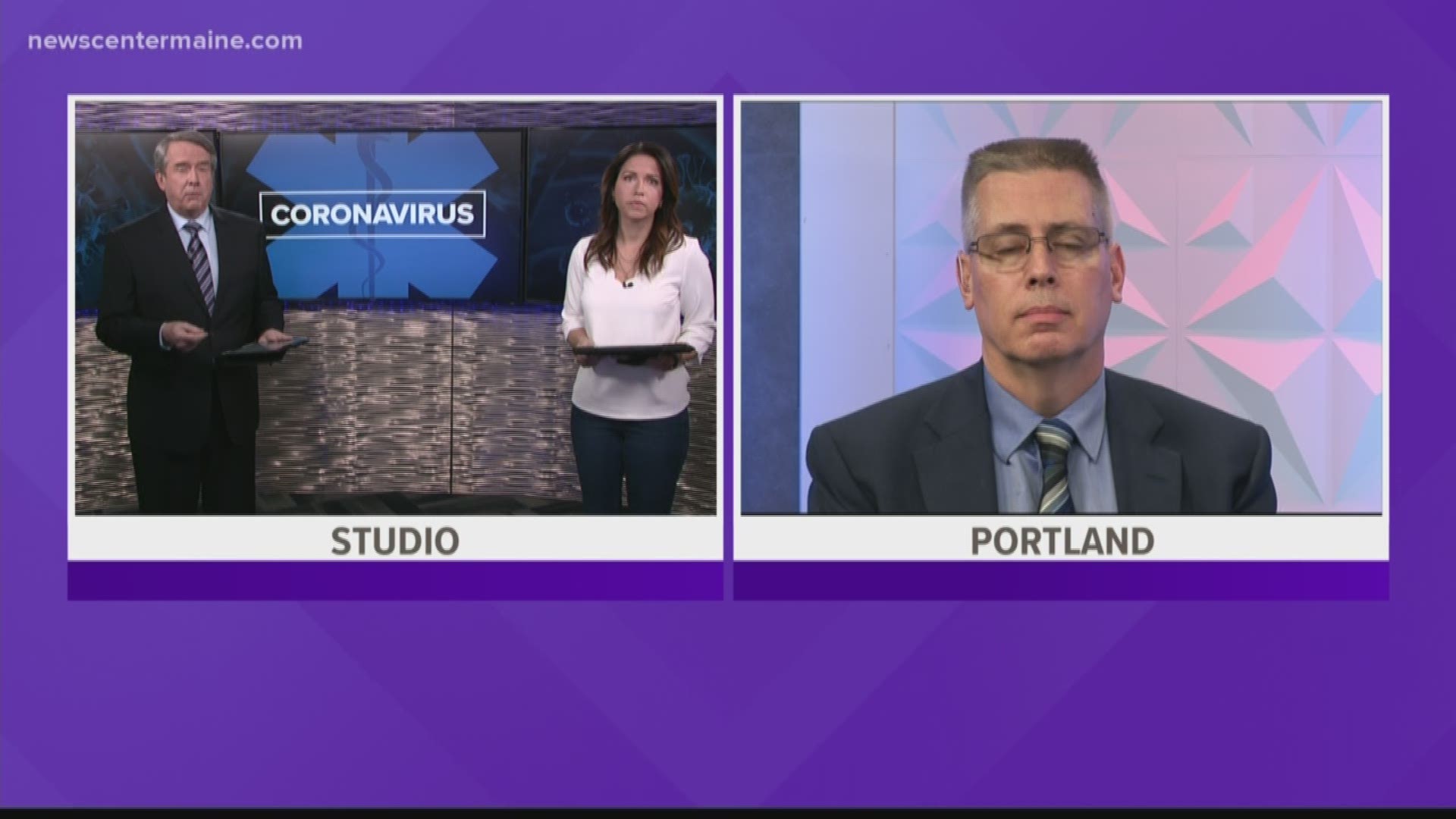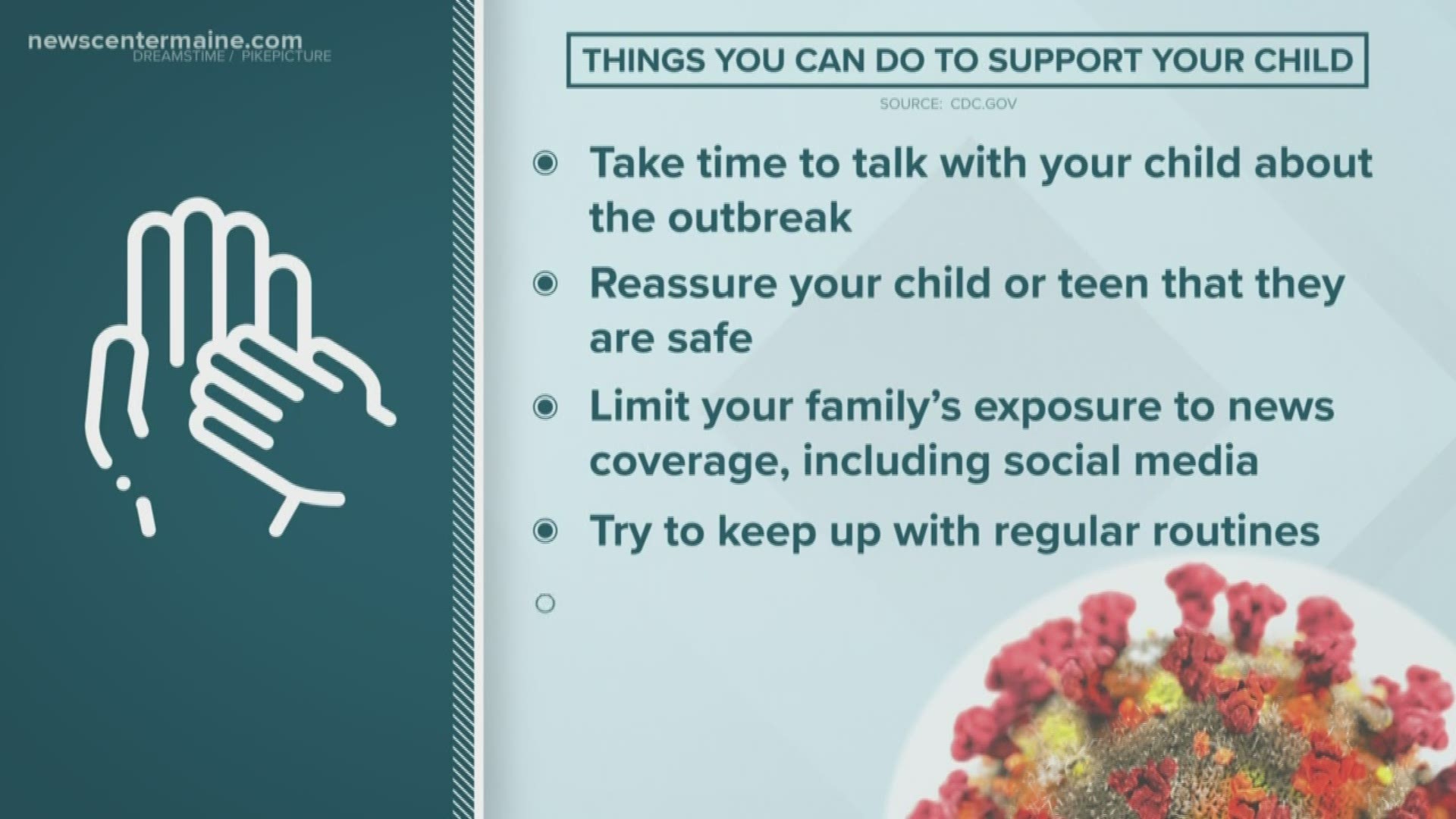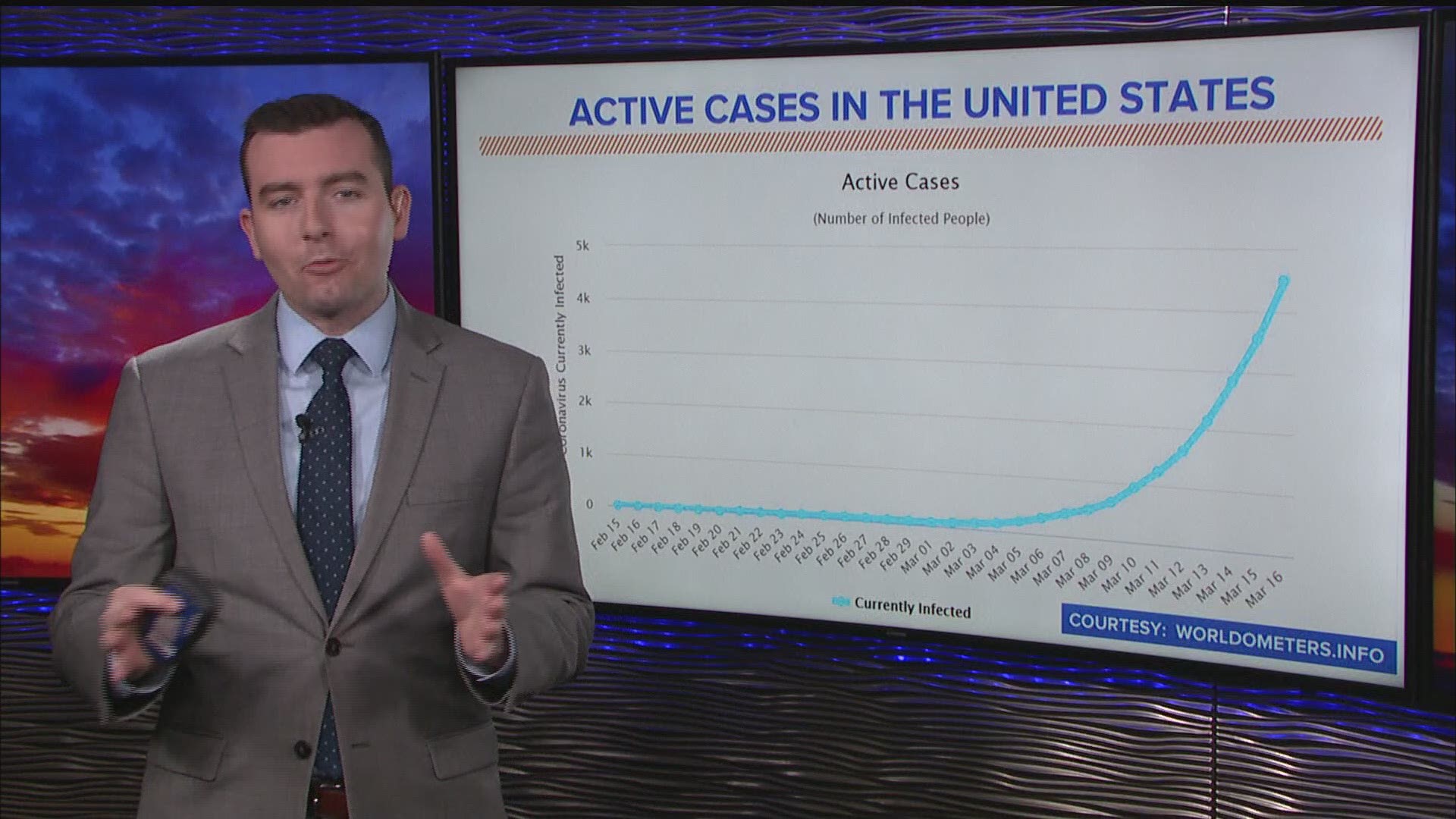MAINE, USA — The coronavirus pandemic has altered our lives and thrust us all into a new sense of normal. Fear and anxiety can be typical reactions during times of uncertainty. Many are feeling the same way. Know that you are not alone - we are all in this together.
People react differently to stressful situations. COVID-19 stress may be higher in the following groups:
- Older people or those at higher risk for disease
- Children and teens
- People who are first responders
- Individuals who have pre-existing mental health conditions or substance abuse issues
A message from the National Alliance on Mental Health (NAMI):
COVID-19, or the coronavirus, has had a global reach and is impacting both the physical and mental health of Mainers. We know that fear and anxiety about a disease can be overwhelming and cause strong emotions in adults and children, as well as exacerbate existing stressors and mental health concerns. It is important to take care of yourself emotionally during this time of turmoil. Click here for more information regarding mental health and COVID-19 from the Centers for Disease Control and Prevention.
RELIEVING STRESS:
- Get the facts- find a dependable resource for accurate health information
- Take suggested steps to protect yourself against the illness
- Focus on what is true
- Stay up-to-date on the news but do not be overwhelmed by it
- Talk about other things and maintain a routine as much as possible
PRACTICE SOCIAL EMOTIONAL SKILLS
Social emotional skills are practical ways for people to cope with uncomfortable feelings or situations. These skills can help a person manage emotions while setting and achieving positive goals. The Collaborative for Academics, Social and Emotional Learning (CASEL) suggest the following:
- Identify and address the triggers that are causing stress
- Be kind to yourself and others
- Keep negative self-talk at bay
- Seek help when it's needed
- Relax your body by taking deep breaths, stretching or meditating
STAY HEALTHY:
- Make healthy food choices
- HYDRATE! Drink lots of water
- Get enough sleep
- Move your body
SIGNS/SYMPTOMS OF STRESS:
There are several signs of stress a person can be on the lookout for in their behavior, emotions, and body. According to the Substance Abuse and Mental Health Services Administration (SAMHSA) the following can be signs of stress:
BEHAVIOR:
- Increase of decrease in activity level
- Increase in alcohol use or using illegal drugs
- Feeling irritated, angry or feeling the need to argue
- Difficulty sleeping or relaxing
- Excessive worrying
YOUR BODY:
- Uneasy stomach or digestive distress
- Headaches
- Sweating or chills
- Muscle twitching or tremors


EMOTIONAL:
- Excessive worry or fear
- Feeling depressed, guilty or angry
- Feeling overwhelmed by sadness
NAMI Maine is here for our community during this difficult time. While the majority of their staff will be working remotely for the next two weeks, they want Mainers affected by mental illness to know how NAMI Maine can help you manage your mental health during this pandemic.
While their office will be closed to walk-ins, the NAMI Maine HelpLine is still active and ready to assist you in providing support as we navigate this crisis together.
Contact us at:
800-464-5767, press 1
helpline@namimaine.org
Please note that the HelpLine is NOT a crisis line. If you believe that you or someone you know could be in crisis, please do not hesitate to call the statewide crisis line at (888) 568-1112.
The CDC says there are simple steps to take to reduce the possible spread of COVID-19:
- Adhere to social distancing guidelines
- Wash your hands often with soap and water for at least 40 seconds or use alcohol-based hand sanitizer
- Avoid close contact with people who are sick
- Cough and sneeze into your elbow
- Avoid touching your eyes, nose, and mouth with unwashed hands
- Stay home while you're sick and avoid close contact with others




